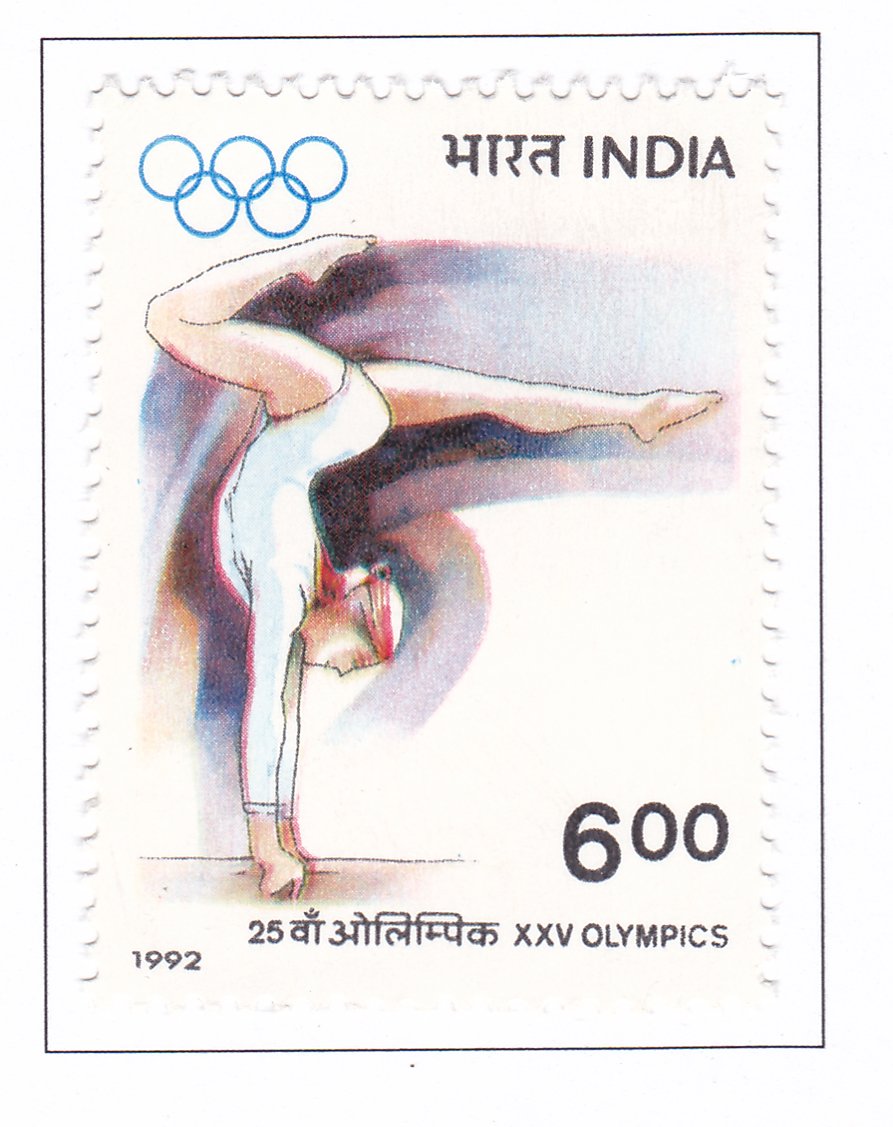25th Olympics: Women’s Gymnastics

Technical Data
| Stamp Set | 25th Olympic Olympic Games |
|---|---|
| Date of Issue | August 8, 1992 |
| Denomination | Rs. 6 |
| Quantity | 1,000,000 |
| Perforation | comb 13 x 13½ |
| Printer | Security Printing Press, Nashik |
| Watermark | No Watermark |
| Colors | Multicolor |
| Catalog Codes |
Michel IN 1357 Stamp Number IN 1414 Yvert et Tellier IN 1155 Stanley Gibbons IN 1507 |
| Themes | Gymnastics | Olympic Games | Sports |
Table of Contents
The Legacy of the Olympic Games
The Olympic Games have a storied history that intertwines athletic excellence with cultural and religious significance. Here’s an overview of their origins, revival, and some of the key traditions that continue to this day.
Ancient Olympic Games
- Origins and Purpose: The ancient Olympic Games began in Olympia, Greece, around 776 BC. These games were held every four years to honor Zeus, the king of the Greek gods. The events were seen as a tribute to the divine, showcasing human physical prowess and dedication.
- Events: The ancient Olympics included various competitions such as:
- Boxing: Known for its brutality, with fighters using their fists without gloves.
- Wrestling: A violent contest of strength and technique.
- Racing: The stadion race, approximately 200 meters long, was one of the main events.
- Chariot Racing: A prestigious event where winners were awarded substantial prizes, including 100 vases of olive oil, food supplies, and even statues.
- End of the Games: The ancient Olympics continued for over a millennium but were abolished in 393 AD by Emperor Theodosius I, who sought to suppress pagan practices.
Revival of the Modern Olympics
- Baron Pierre de Coubertin: In the late 19th century, Frenchman Pierre de Coubertin envisioned reviving the Olympics in their pure, competitive form. His vision was realized with the formation of the International Olympic Committee (IOC).
- First Modern Olympics: The modern Olympic Games were officially revived on April 5, 1896, in Athens, Greece. King George I of Greece inaugurated the Games. The 1896 Olympics featured 42 events across ten disciplines, with 285 athletes participating, marking the dawn of a new era.
Key Traditions
- Gymnastics: Known as the “mother of all sports,” gymnastics is a showcase of human physical capabilities and aesthetic expression. It remains a fundamental part of the Olympic Games, representing the art of physical performance.
- Olympic Torch Relay: The torch relay is a significant tradition, symbolizing the continuity of the Olympic spirit. The flame is lit at the Temple of Zeus in Olympia and carried by runners to the host city. A notable moment occurred during the 1992 Barcelona Olympics when the torch was ignited by a lighted arrow shot by an expert archer.
The Olympic Games have evolved from their ancient origins to become a global celebration of athletic achievement and international unity. The blend of historical reverence, competitive spirit, and modern innovations continues to make the Olympics a unique and inspiring event.
